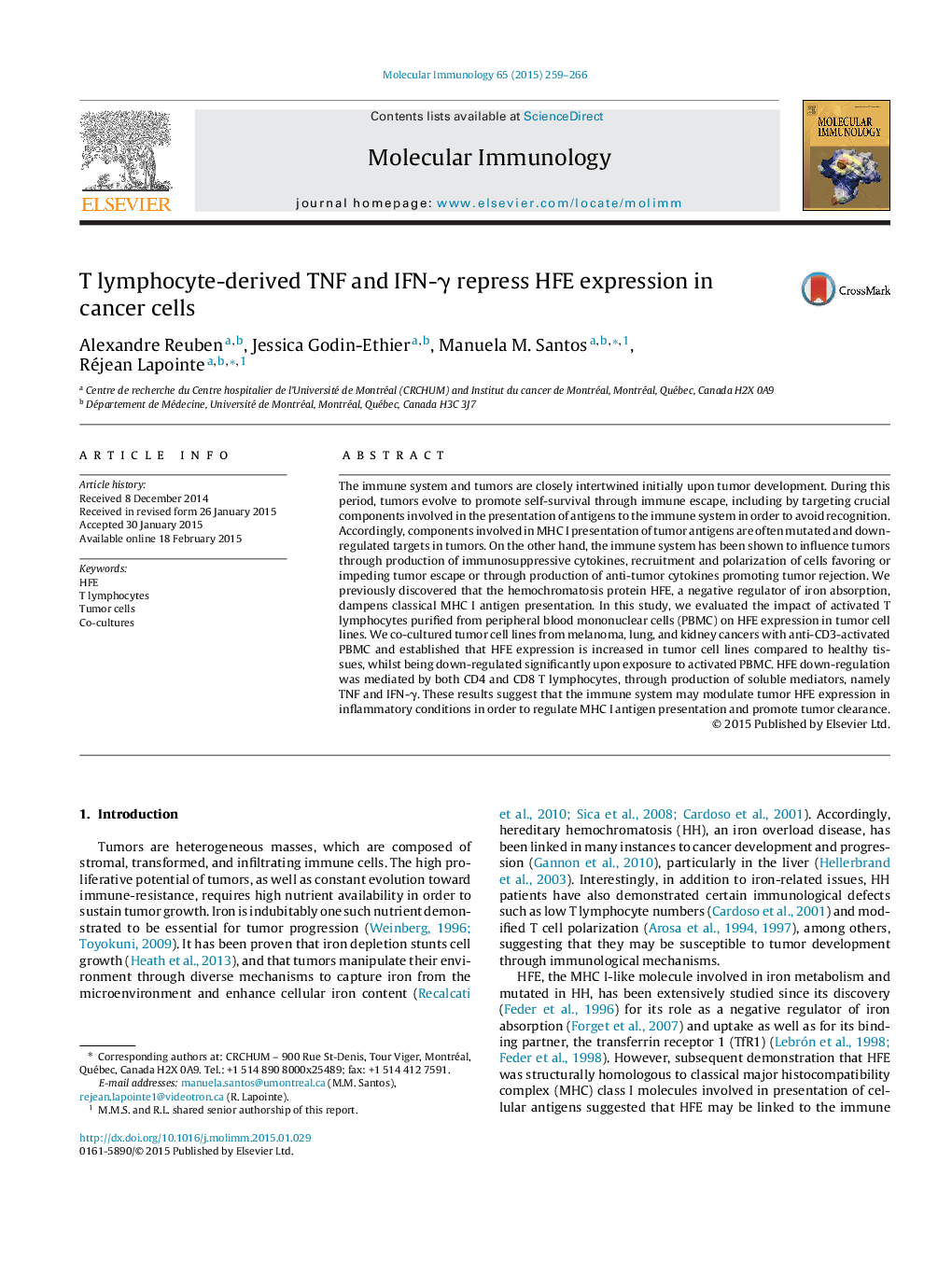| Article ID | Journal | Published Year | Pages | File Type |
|---|---|---|---|---|
| 2830785 | Molecular Immunology | 2015 | 8 Pages |
•The hemochromatosis protein HFE has been shown to inhibit antigen-specific CD8+ T cell activation.•Tumor cells can express high levels of endogenous HFE.•Exposure of tumor cells to activated T cells results in tumor-HFE down-regulation.•HFE inhibition is mediated through TNF and IFN-γ secretion.•This modulation of HFE expression in tumor cells could affect recognition and clearance by the immune system.
The immune system and tumors are closely intertwined initially upon tumor development. During this period, tumors evolve to promote self-survival through immune escape, including by targeting crucial components involved in the presentation of antigens to the immune system in order to avoid recognition. Accordingly, components involved in MHC I presentation of tumor antigens are often mutated and down-regulated targets in tumors. On the other hand, the immune system has been shown to influence tumors through production of immunosuppressive cytokines, recruitment and polarization of cells favoring or impeding tumor escape or through production of anti-tumor cytokines promoting tumor rejection. We previously discovered that the hemochromatosis protein HFE, a negative regulator of iron absorption, dampens classical MHC I antigen presentation. In this study, we evaluated the impact of activated T lymphocytes purified from peripheral blood mononuclear cells (PBMC) on HFE expression in tumor cell lines. We co-cultured tumor cell lines from melanoma, lung, and kidney cancers with anti-CD3-activated PBMC and established that HFE expression is increased in tumor cell lines compared to healthy tissues, whilst being down-regulated significantly upon exposure to activated PBMC. HFE down-regulation was mediated by both CD4 and CD8 T lymphocytes, through production of soluble mediators, namely TNF and IFN-γ. These results suggest that the immune system may modulate tumor HFE expression in inflammatory conditions in order to regulate MHC I antigen presentation and promote tumor clearance.
